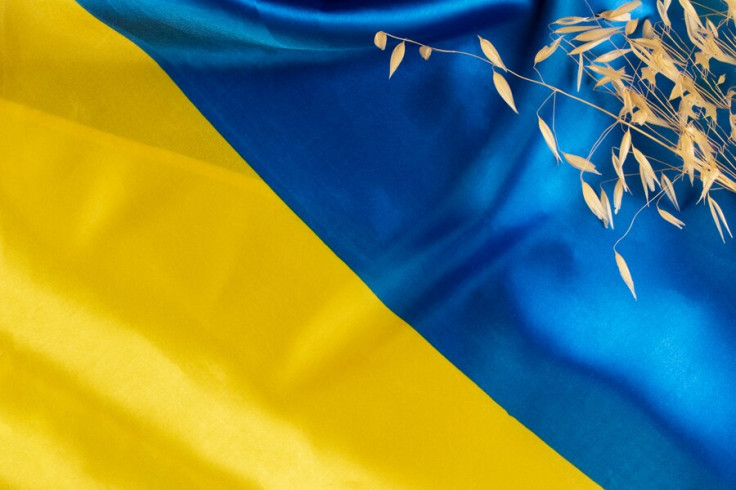Despite the War, CEO Oleg Bakhmatyuk Is Optimistic About the Future of Ukraine
Ukrainian Agricultural Industry's Resilience Shines Amid Conflict, Despite Adverse Reactions from EU Countries

Last year, the program Pickup 4 Change brought together Scottish farmers to donate vehicles for use in Ukraine. With a doubled target, the initiative aimed to supply 200 vehicles to deliver humanitarian aid. The resilience of industries like agriculture, bolstered by Ukrainian defence efforts, has been a beacon of hope during the conflict that started in 2022.
Oleg Bakhmatyuk, founder and CEO of Urklandfarming, a group of major agricultural companies in Ukraine and globally, underscores the pivotal role of the agricultural and defence industries in Ukraine's resilience. Despite the war's destruction, these industries have helped the country weather the storm over the past two years.
However, the positive outcomes have sparked adverse reactions in other European Union countries. Polish farmers, for instance, have staged protests against the EU Green Aid program, which addresses climate change policies and the end of customs duties impacting Ukrainian agriculture.
Due to that disagreement, Russia has gained an advantage in providing agricultural supplies to the European Union. Poland, for example, imported more than 12,000 tonnes of grain from Russia between January 2022 and May 2023, a decision that did not inspire any protest.
To Bakhmatyuk, the EU's economic security policies should aim to replace Russian supplies with Ukrainian, but that is not what happened: "For some reason, blockades are being imposed against Ukraine, but Polish agricultural producers have complaints about the EU's economic policy, not Ukraine."
Such protests may align with similar occurrences observed in other European countries, as farmers fear Ukraine joining the European Union. For the founder of Urklandfarming, this is a rather primitive concern.
"The future of the European Union, including Ukraine, lies in joining forces and strengthening the EU's competitiveness in global food markets. Such a consolidation of efforts will create a single large and independent player, which is the way to significantly increase the European Union's economic capacity significantly," he explains.
An example of partnership and conciliation cited by Bakhmatyuk is the case of the Ukrainian and Bulgarian sunflower productions. In 2022, Ukraine exported almost 3 million tonnes of the plant, a significant increase in the average yearly output of 15,000 tonnes. Bulgarian farmers, on the other hand, did not achieve the same results in their harvest. In contrast, Ukraine had a severe problem with processing facilities destroyed and paused due to the war.
"In the case of Bulgaria, it was not a conflict, but a synergy: we did not export sunflowers for a certain period of the season until the local farmers sold the crop," explains the founder of Urklandfarming. "Then, we helped local crushers to a great extent, and thanks to the export of Ukrainian sunflower, they have loaded their processing plants and are successfully selling their products. Everybody benefited."
Another example is Romania, which has significantly strengthened its position as an exporter thanks to Ukrainian grain. This successful partnership has allowed the Romanian Constanta port to reach historic exporting volumes in 2023: it is estimated that 36 million metric tons of grain were exported last year, a staggering increase of 50% compared to 2022, demonstrating the positive impact of Ukrainian agricultural exports on partner countries.
The export corridor has also been helping countries to achieve similar objectives. For Bakhmatyuk, this is not a miracle but the result of hard work and efforts by the Ukrainian government, defence forces, and Ukrainian agricultural producers. Last year, Ukraine managed to get closer to the pre-war 2021 port transshipment figure, and in January 2024, the country exported 12 million tonnes of products, a decrease of only 2 million tonnes. "To get figures back to normal, though, the security in the Black Sea must be maintained. Then, gradual growth in maritime exports would be able to be observed," says the CEO.
In line with this, Ukraine has secured long-term support from partners, paving the way for the country's economy to grow by 5% in 2023. "Ukraine has demonstrated resilience and predictability, making it an attractive investment destination in a market as dynamic as Europe," explains Oleg Bakhmatyuk, highlighting the potential of the Ukrainian agricultural industry.
However, the good news brought by the agricultural sector was not mirrored in other areas of the industry, such as the metallurgical industry. Due to the destruction of production facilities during the war, production has declined significantly. Bakhmatyuk mentions that the share of metallurgical production in the composition of industrial sales decreased by 7.9 percentage points compared to 2021 and amounted to 9.1%.
Still, the entrepreneur is optimistic about the forecasts. "Investment is expected to grow by almost 30% in 2024 compared to last year. This means that we are becoming a more modern and interesting economy for investors," says the founder of Urklandfarming, who concludes that, despite the war, Ukraine still has plenty of chances to achieve a much stronger economic position.
About the author: Lidia Smith is a translator and copywriter, and has written many articles for LATAM and US media.
© Copyright IBTimes 2025. All rights reserved.





















